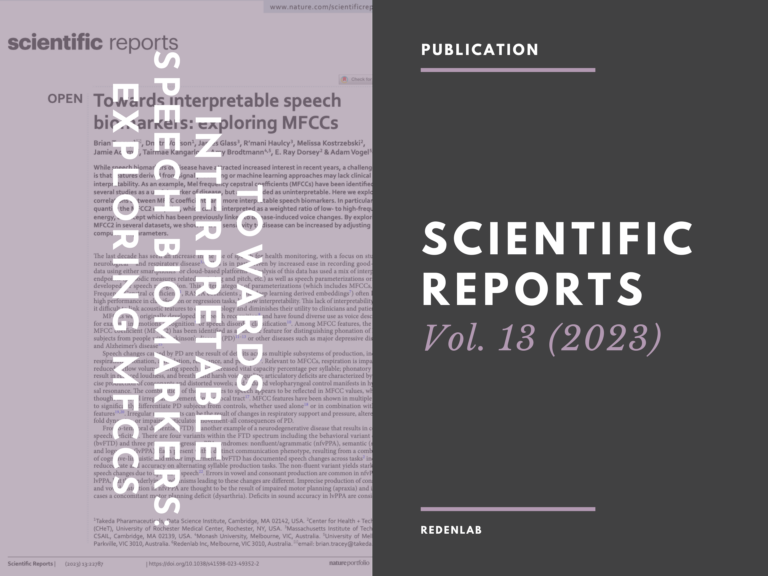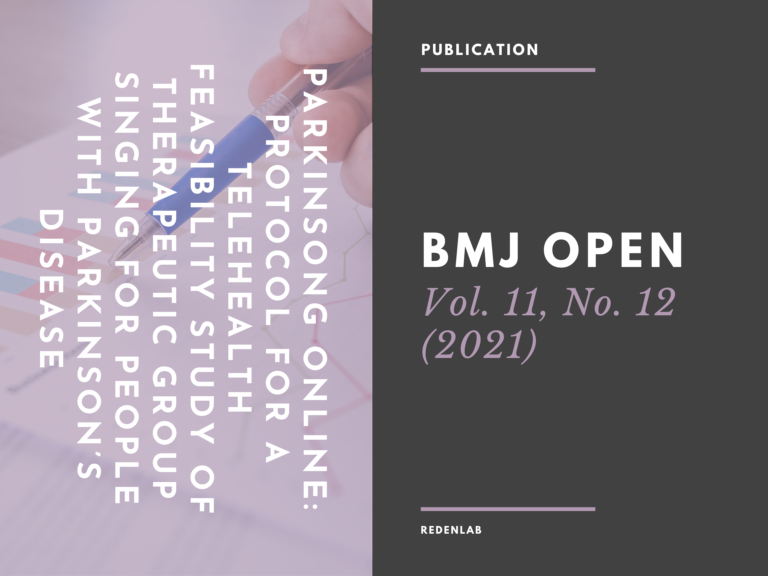Objectively measure speech in Parkinson’s disease patients with great precision
In 2020, an estimated 9.4 million people globally were living with Parkinson’s disease, with numbers increasing to 12.7 million people by 2027. Coupled with the subjective nature of current Parkinson’s disease monitoring assessment methods, there is a need for sensitive, scalable and meaningful assessments of disease monitoring. Redenlab is a world leader in the development of speech data capture and analysis tools, creating objective motor speech and cognitive-linguistic-based assessments. Their approach has proven utility in industry and academic driven studies, enhancing decision making at each stage of the drug development and evaluation process.

How Redenlab does it better
Easy transition to objective assessment
Purpose built algorithms
Clinically motivated metrics with cutting edge technology
ParkinSong: a clinical trial turn PD treatment
Working with scientists from the Conservatorium of Music at The University of Melbourne in Australia, Redenlab assisted in outcome measure design and analysis for a randomized trial of ParkinSong, a group therapy session for people with Parkinson’s disease.
Since its clinical trial, the therapy has been employed across Australia by Parkinson’s Australia, an Australian advocacy group dedicated to improving the quality of life of people diagnosed with Parkinson’s disease.

30 sites
2200 patients
4 clinical trials
3 Natural history studies

Redenlab announces landmark study in collaboration with Queensland Institute of Medical Research

Towards interpretable speech biomarkers: exploring MFCCs


